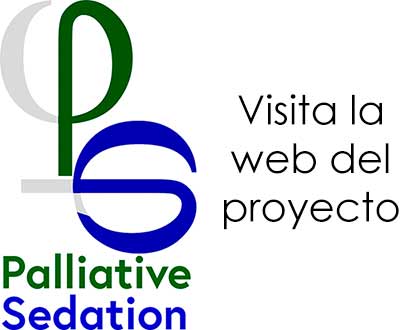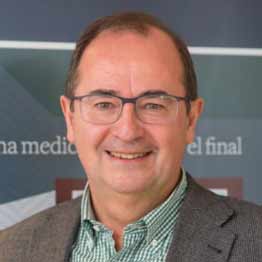project 2019-2023
Due to the increase in cancer and multiple chronic diseases, it is likely that issue of patients with refractory symptoms, i.e. severe symptoms where conventional treatment options fail, will increase. In such cases, palliative sedation (PS) may be indicated, which involves intentionally decreasing consciousness at the end of life.
However, PS is too often restricted to continuous deep sedation and is confused with precipitating death. This project offers a modified concept, proportional SP, which includes titrating sedation to the extent that it allows symptom control for the greater wellbeing of the patient.
The project consortium consists of experts in the field of palliative care and PPS from eight European countries. In addition, leading members of committee advisor participate in the European Cancer Patient Coalition to promote the patient perspective.
The project has received funding from the European Commission under the European Union's Horizon 2020 research and innovation programme at framework under agreement grant no. 825700.
GOALS
1
To review the current state of the art on the administration of palliative sedation, including the terminology used, through a comprehensive review of the literature and national surveys.
2
To develop an observational, international, multicenter study of sedation practices in five palliative care centers.
3
To conduct a multiple qualitative case study in five European centers to improve understanding of palliative sedation practices from the perspective of doctors, nurses and family caregivers.
4
To conduct a moral case deliberation in 16 clinical centers in Europe to investigate clinical decision making on refractory symptoms and proportional palliative sedation.
5
Conduct a cost-consequence analysis and formulate policy recommendations for the development for a proportional use of palliative sedation.
6
Review Europe's current framework for palliative sedation using Delphi methodology.
7
Develop and deliver a course educational on line to help doctors, patients, family members and interested persons to improve the understanding of the use of palliative sedation for refractory symptoms, including medical and ethical aspects.
8
Disseminate the messages core topic of project, using a specific, timely and fully integrated approach transfer and exchange of knowledge , which will also include the publication of a free downloadable e-book.
- Infographie sur la sédation palliative (Français)
- Infografik zur palliativen Sedierung (Deutsch)
- Infographic on palliative sedation (Italian)
- Palliatieve sedatie infographic (Nederlands)
- Palliatieve sedatie infographic (Belg)
- Palliatív szedáció infografika (Magyar)
Team of research
→ María Arantzamendi
Research Fellow, Institute for Culture and Society
→ Alazne Belar
Research Fellow, Institute for Culture and Society
→ Rocío Rojí Buqueras
Research Fellow, Clínica Universidad de Navarra
→ Eduardo Garralda
Research Technician, Institute for Culture and Society
Collaborating centers:
→ Radboud University & Radboudumc (The Netherlands) - coordinator
→ University of Pecs (Hungary)
→ Katholieke Univesiteit Leuven (Belgium)
→ Hospice Casa Sperantei (Romania)
→ Universitätsklinikum Bonn (Germany)
→ Lancaster University (United Kingdom)
→ La Maddalena Cancer Center (Italy)
→ European Association for Palliative Care




